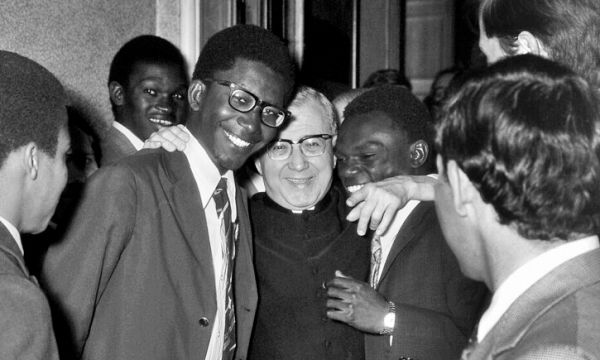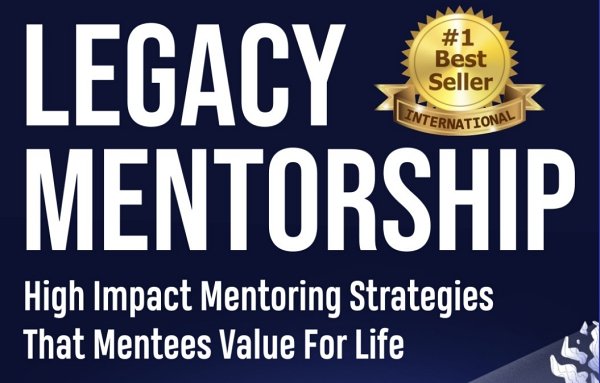2020 marks 30 years of my being in the teaching profession, both formally and informally, and inseparable from that, mentoring. I have experienced mentoring both as a mentee since my grade school years and as a mentor from the time I started teaching after college. Mentoring was something that came almost naturally, getting interested in the lives of mentees, sincerely loving and helping them become better individuals. My mentees appreciated my efforts. Knowing that I didn’t study to become a psychologist, I wondered. Could it be just a matter of personality? Did I just hit it off with my mentees? What was my secret? I would oftentimes be asked about my mentoring style.
As a young teacher-mentor, I never really knew the answers. I simply thought that I just did what I felt was right. I did not claim to own any secrets to mentoring. I knew I was learning the ropes more than anything. This is one reason why I felt persons would benefit if I did write about my experiences on mentoring.
My father and brothers are authors, not me. I was once asked by my father to write a book about my mother’s death. He even gave me the title to the book. I thought then that he asked me because I kept a diary on my mother’s last months. So, I wrote a book, out of obedience. That book entitled, ‘She Died in My Arms,’ circulated among close friends of the family, some 19 years ago now. I never had any other writing stint after that.

I once got into a discussion on book writing with my brother who encouraged me to write again. We then laid down a few themes related to my profession that I could possibly write about. Among the topics we came up with were: mentoring; choral discipline for children’s choirs; story-telling as a teaching strategy; core values of the school where I currently teach; and a few more ideas. At that time my father had just passed away, and with another eventful death like my mother’s, my brother also suggested that we come up with a book on the story of Papa’s death.
I recall having expressed to my brother my apprehensions about writing. I do not want to claim to be an expert in any of those themes mentioned, thus I did not feel authoritative enough to write about them. He continued encouraging me to write since none of the experts I knew were actually writing about those themes. I did not write just as yet. More time passed. I however continued to scribble notes on each of these themes whenever I had spare time.
The opportunity to actually sit down and write came during the lockdown last February and March. Recuperating from radiation therapy for cancer, I had time to write one page a day, as advised by another author friend of mine. I asked my brother if it was smart to write a page on each of these themes and he advised me to focus on one book at a time. I then decided that I would write first about mentoring. I wrote one segment a day, one mentee story a day. I decided on the chapters, one per decade of my teaching life. I was enjoying the recollection and the writing process.
I did not write more than one segment a day. That way, I combined it with doing other things. Before long, even without my realizing it, I managed to write about 30 mentees, 30 lives. Later, I decided to add a theoretical portion at the beginning of the book, which would be exemplified in the actual life stories and experiences that followed. The book was taking shape. Meanwhile, my brother already coined what would be the catchy title and subtitle of the book.
As I wrote, I questioned myself often about the target audience of my book, the promise and overarching benefit it would give to readers. I narrowed down my target readers to mentors, prospect mentors, and all teachers. I always espoused the thought that all teachers ought to be mentors. Teachers do not only teach their subject matter. Above all, we are concerned about the person of our students, their growth as individuals, and thus mentoring is inseparable from teaching. Eventually I realized that the book could benefit everyone as anyone could identify with one or some of the lives I included there. The true-to-life stories are not only amusing but they bring out the benefits of healthy mentor-mentee relationships and can be encouraging to all mentors, teachers and even parents. It was only later on that I realized the impact of the book on many different types of readers.
Needless to say, the experiences and ideas included in the book are mostly imbibed teachings of St. Josemaría Escrivá, whose influence in my life has been momentous. The mentoring that I have experienced both as a mentee and as a mentor were replete with his influence, both in content and in the manner it was carried out. St. Josemaría’s natural friendliness, sincerity of purpose and love, his personal touch in the way he dealt with souls showed the greatness of his desire to bring everyone closer to God. This love and personal involvement in the lives of persons that transform them is the spirit behind effective mentoring.

The great message of loving one’s mentees as well as other styles and effective mentoring strategies outlined in the book, will be a great help not only for mentors but for anyone wanting to help other persons to become better individuals. Needless to say, everyone conscious of their apostolic mission of helping others will find this book meaningful and inspiring.
The positive response to this book on LEGACY MENTORSHIP is overwhelming, to say the least. I have finished 2 other manuscripts from among the titles I specified. I am encouraged to keep writing. God-willing and with keeping to “one page a day,” hopefully more uplifting books can be penned in the near future. To God be all the Glory!

